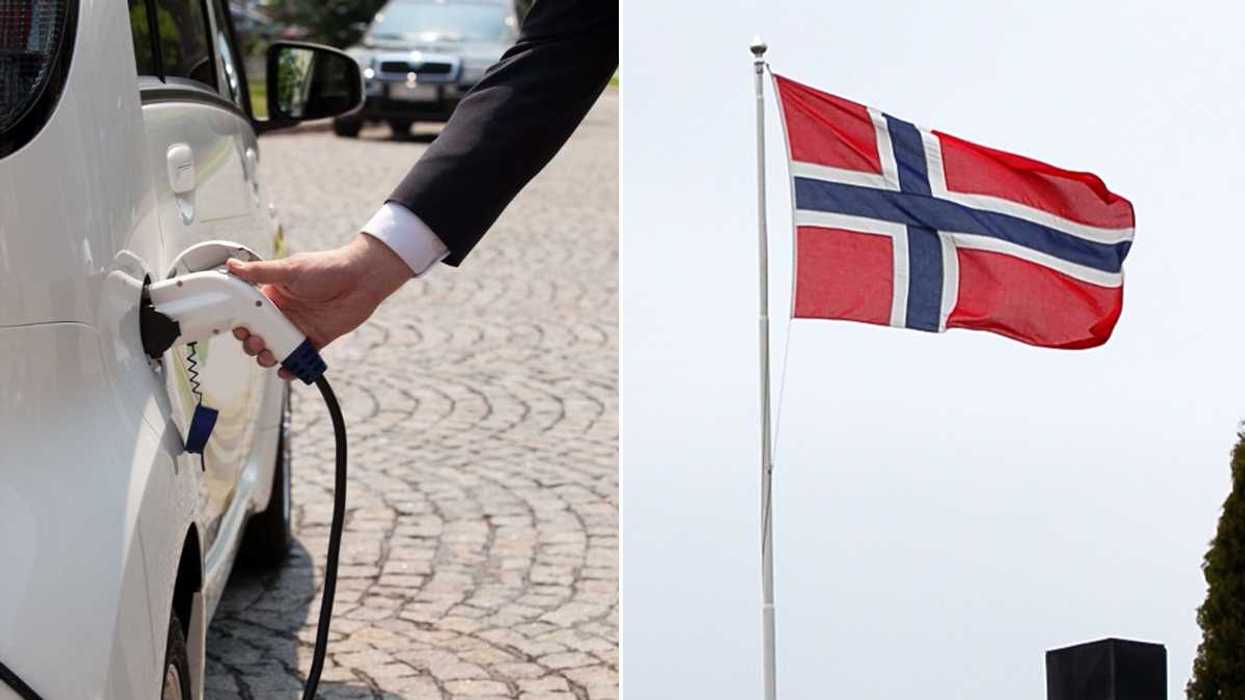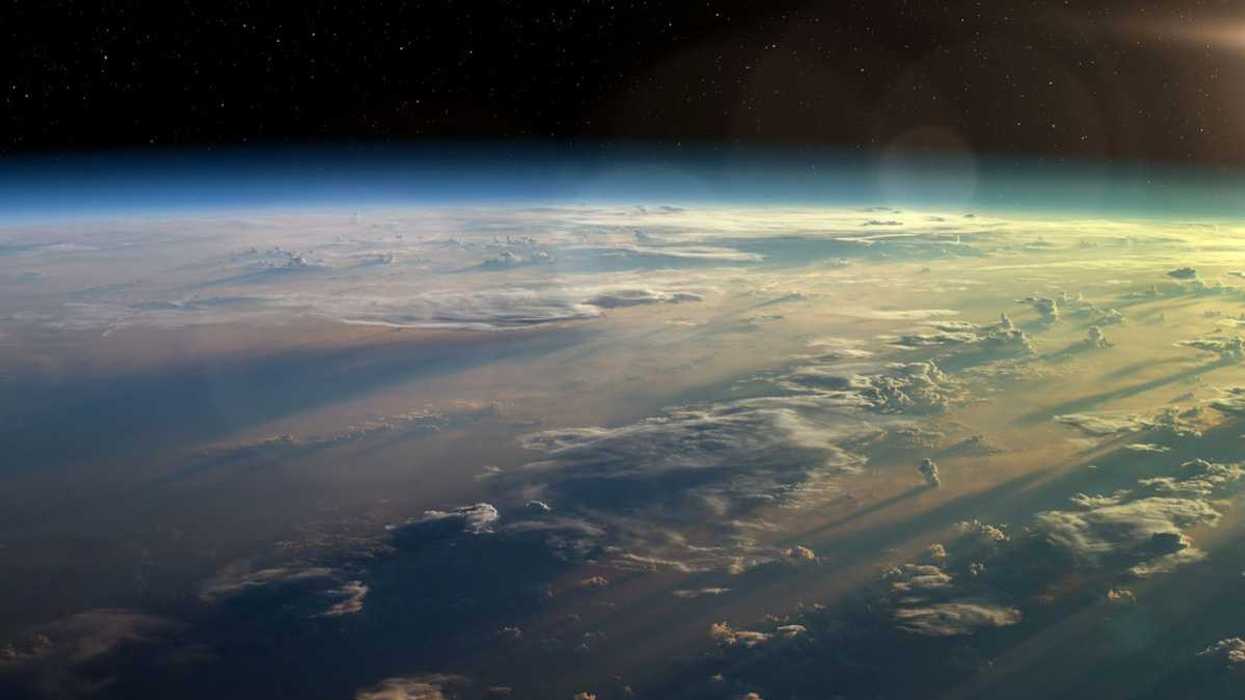If we ever find aliens, they'll be thirsty.
We all know that people need water to live, but the universe is a big place, which raises questions: Would alien life need water, too? And how much water is out there, anyway? To get a broader perspective, GOOD talked with Seth Shostak, a senior astronomer at the Search for Extraterrestrial Intelligence Institute (SETI).GOOD: Why is water so important for life?Seth Shostak: Imagine taking your old chemistry set out and dumping it onto the living-room floor. Not much happens, except maybe your mom gets upset. Now, if you bring over a pail of water and throw it on top, then something will happen. Water is great for life for that very straightforward reason: It's good for chemistry.G: Couldn't you just use another liquid?SS: Yeah, in principle. But if you actually look at the kind of things that would be liquid, and that might be on planets you can imagine, water still comes out as the best fit. One of the reasons for that is that water is liquid over a very wide range of temperatures: 33 degrees to 212 degrees Fahrenheit. These other liquids you might find-ammonia, methane, those sorts of things, maybe even liquid hydrogen on the surface of Jupiter if you had that-they're only liquid in a very small and unfortunate range of temperatures.G: So how much water is there in the universe?SS: Hydrogen is the number one element in the universe. Three-quarters of the universe by weight is hydrogen. And the third most popular element in the entire cosmos is oxygen. There's a lot of H and a lot of O, and when they get together you get water. So there's a lot of water out there.G: Do we know where it is?SS: Water vapor-you'll probably find that in any planet that has an atmosphere. But liquid water? If you send Bruce Willis to Mars with a bunch of roughnecks and have them drill down a couple hundred feet-maybe not even that far-you'd probably find liquid water. We're not 100 percent sure, but that's one place it's likely to be. The second place is Europa, one of the moons of Jupiter. It's covered in ice. But the odds are probably 90 percent that if you send a probe or something and melt it through the hard ice that's covering that moon, you'd find a big ocean underneath with as much water in it as the Atlantic and the Pacific added together times two.Callisto and Ganymede, both additional moons of Jupiter, probably have liquid water oceans. Even Titan might have some liquid water occasionally. Another moon of Saturn, called Enceladus, has these big geysers coming out. So there's some water. In the atmosphere of Venus-if you get away from the surface, which is really much too toasty for life, and go up a couple of miles where it gets cooler-maybe there are some water droplets up there.So there are seven other worlds just in our solar system that might have liquid water. And water must be pretty common in interstellar space, too, by the way just molecules hanging around. So you expect a lot of water. There's no shortage of water. Except, you know, in Israel."There's a lot of H and a lot of O, and when they get together you get water. So there's a lot of water out there."G: And San Diego, among other places. Can you imagine life without water?SS: Well, it's hard. There are people who have imagined life without water because in the end they say, what is life, really? The answer to that question is "we don't know." There's no good definition of life. And every 10th grader would disagree with you because they've read their biology textbooks and they'd say, "You know, life: It has a metabolism, so it takes food and it excretes something and it reproduces and it moves around," and they've got this little laundry list of things. But the fact is, you can always find exceptions. Fire reproduces but it's not alive. Mules don't reproduce but they are alive. So we don't really know what life is. And people have been ingenious in thinking of ways in which we could have organized activity that everyone would say was life even though there wasn't any water involved.But I think that if we find extraterrestrial intelligence, there's a very big chance that that's not biological at all. The reason is that once a civilization invents radio, and we can find it with our SETI experiments, within 100, 200, 300 years, it creates artificial intelligence.In terms of the great scheme of things, that's essentially right after you invent radio. It just seems statistically very likely, if you pick up a signal, that it's coming from a society that has already gone through that quick stage, and has moved on to artificial intelligence. And if you have artificial intelligence, maybe you don't need liquid water anymore. My computer doesn't need liquid water. In fact, it doesn't even like liquid water. I put it in the bathtub and it refuses to function.
















 Leonard Cohen performs in Australia in 2009.Stefan Karpiniec/
Leonard Cohen performs in Australia in 2009.Stefan Karpiniec/  Enjoying a sunset.Photo credit
Enjoying a sunset.Photo credit 



 Amoxicillin is a commonly prescribed broad-spectrum antibiotic.
Amoxicillin is a commonly prescribed broad-spectrum antibiotic.  Chart: The Conversation, CC-BY-ND
Chart: The Conversation, CC-BY-ND
 An envelope filled with cashCanva
An envelope filled with cashCanva Gif of someone saying "Oh, you
Gif of someone saying "Oh, you
 Two penguins play by the waterCanva
Two penguins play by the waterCanva
 A parking lot for charging electric vehicles.Photo credit
A parking lot for charging electric vehicles.Photo credit  Oil production.Photo credit
Oil production.Photo credit  Sun shines over the Earth.Photo credit
Sun shines over the Earth.Photo credit